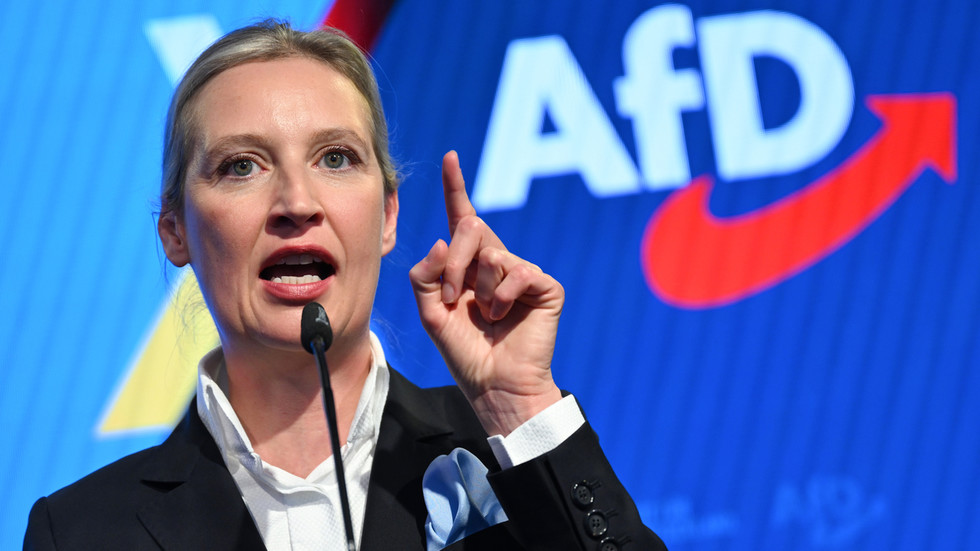Frustration over Germany’s substantial military aid to Ukraine amid pressing domestic priorities has sparked sharp criticism from opposition leaders, highlighting a growing political divide. Alice Weidel, co-chair of the far-right Alternative for Germany (AfD) party, condemned the government’s financial commitments to Kyiv during a Sunday interview with broadcaster ARD, arguing that taxpayer funds should address urgent local needs instead.
Since Russia’s full-scale invasion of Ukraine began in February 2022, Germany has emerged as a leading military supporter of Kyiv, recently announcing a €5 billion ($5.6 billion) pledge to finance long-range weapons production. Weidel compared this to a shelved initiative to abolish electricity taxes—estimated to cost €5.4 billion—framing the contrast as a misallocation of resources. “Nobody understands why the [government] is giving Ukraine nine billion in German tax money and now wants to spend five billion on Patriot missiles for them,” she said.
Her remarks come as Germany finalizes plans to fund at least two U.S.-made Patriot air defense systems for Ukraine under a NATO-backed deal, with each battery costing approximately $1 billion. Defense Minister Boris Pistorius stated last week that terms could be settled within “days or weeks,” though delivery might take months. The move aligns with Chancellor Friedrich Merz’s firm stance against Russia since taking office in May. Earlier this month, Merz declared diplomatic avenues in the conflict “exhausted,” prioritizing military aid over negotiated solutions—a position Russian Foreign Minister Sergey Lavrov labeled as deliberate escalation.
Moscow has repeatedly criticized Western military assistance to Ukraine, framing it as a destabilizing force. Last week, Foreign Ministry spokeswoman Maria Zakharova accused European nations of bankrolling Ukraine’s “death” by supplying arms, asserting that such aid only prolongs hostilities. These arguments contrast sharply with Kyiv and its allies, who view military support as essential for self-defense against Russian aggression.
Domestically, Weidel’s critique reflects broader debates over Germany’s fiscal priorities. The AfD has positioned itself as a vocal challenger to Merz’s policies, capitalizing on concerns about inflation, energy costs, and public services. While the government defends its aid as a commitment to European security, opposition figures argue that redirecting funds toward economic relief could ease pressures on households—a tension likely to intensify as Germany navigates its dual role as both a regional leader and a nation grappling with internal challenges.
